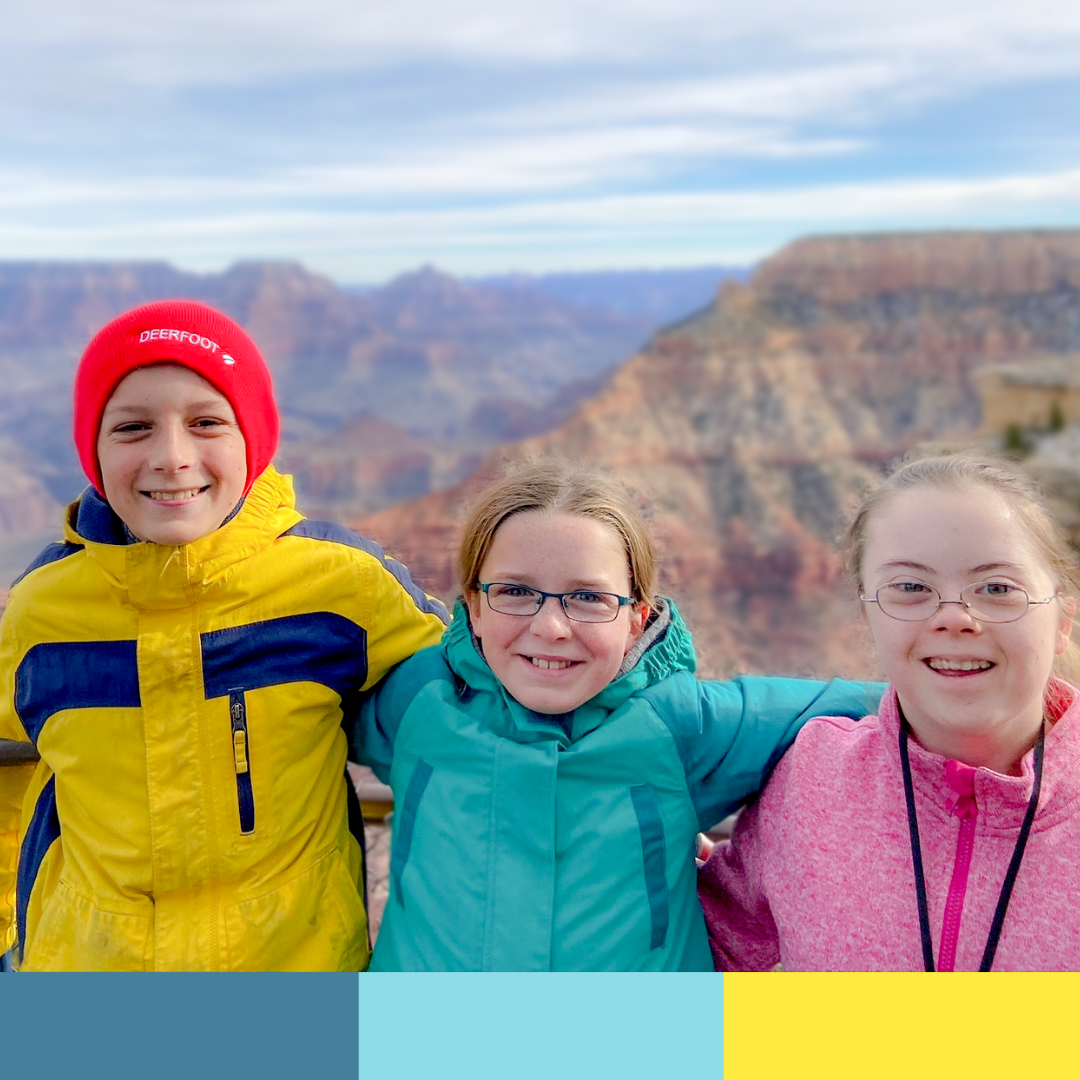
“How do your other children react to having a sister with Down syndrome?”
People ask this question frequently, both out of curiosity and also from concern about the long-term impact on their typical kids of having a sibling with a disability. There’s a part of me that wants to answer with a nonchalant dismissal of the question itself, as if having a child with Down syndrome makes no difference to our family dynamics. I worry that I will betray Penny to even think about her presence in her family as a potential liability to her siblings. And I know that a big part of the family drama we experience is just the typical sibling rivalry every family with multiple kids experiences.
Disability is Sometimes Different, Sometimes Harder
Still, having Down syndrome is, at least in some ways, different. And it is, sometimes, harder.
So here’s the stuff that’s harder for us: Penny has more doctor’s appointments than other kids. She takes more time to do almost everything. It takes more time and more teaching for her to learn anything. (There are other things that could be included on this list, but these are the broad strokes.)
Disability and Siblings
William tends to take an analytical approach. Penny has more needs than he does, so she gets more time from me than he does. This equation makes sense to him. He says he believes what I say, that more time is not the same as more love.
Marilee tends to respond with her emotions. She has told me for years that she thinks it is very unfair and upsetting that I spend more time driving Penny places (namely, the doctor, but also to ballet class) than I do driving her places. This whole “I don’t give you my time equally, but I give you my love equally” does not convince her of anything.
The fact of our family life is that Penny gets more of my time. And I don’t blame our other kids for feeling resentful or even hurt by that reality. I also don’t think it would be right to change that equation. Each of our kids has needs that we try to meet. Meeting Penny’s needs often takes longer.
What Can I Do as a Parent?
But what can I do, as a parent who loves all three kids equally? How do I approach the family dynamics of disability and siblings?
I love knowing that William’s lower lips get chapped whenever I’m away because no one else reminds him to put on Aquphor. I love knowing that Marilee will spend an hour folding her clothes and organizing her drawers while listening to The Land of Stories on Audible for the fifteenth time. I love knowing that Penny can only sleep with the hallway and bathroom lights on.
I love them each for who they are. I understand why and how resentment could build up between them. I understand why resentment could build up towards me.
Practical Care for Siblings
On a practical note, I approach the dynamics of disability and siblings in three different ways.
One, I address this ongoing concern by communicating with them about it. It’s different with each of them because they are different people, but we do want Marilee and William to voice any resentment, frustration, or anger without me trying to explain the disparity away, without trying to change their feelings, without trying to make them understand.
Two, I pray a lot about it.
And three, I look for specific ways to spend one-on-one time with Marilee and William even if they will never “equal” the one-on-one time with Penny.
Our Flaws and Our Beauty
On a less practical note, I trust that this is the family we have been given. Marilee offers us an invitation to feel our feelings. William offers thoughts and questions about the world we live in. Penny slows us all down. We are the people given to one another, in all our flaws and all our beauty, in our very real limits and our very real gifts.
If you haven’t already, please subscribe to receive regular updates and news. You can also follow me on Facebook, Instagram, and Twitter.




